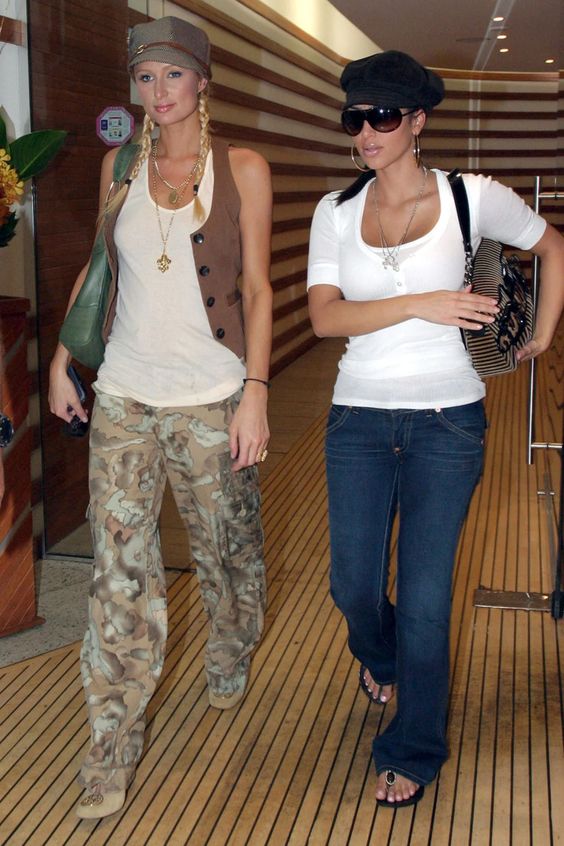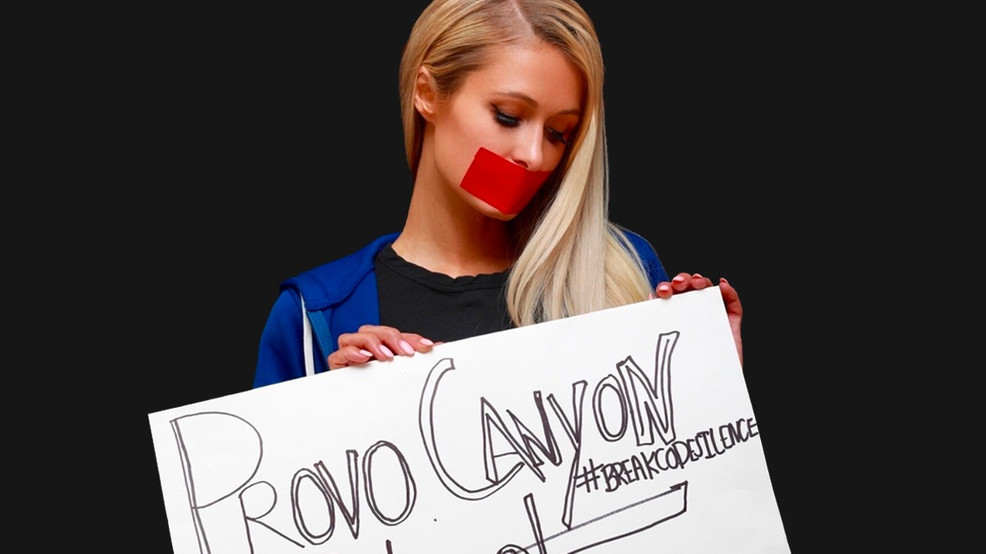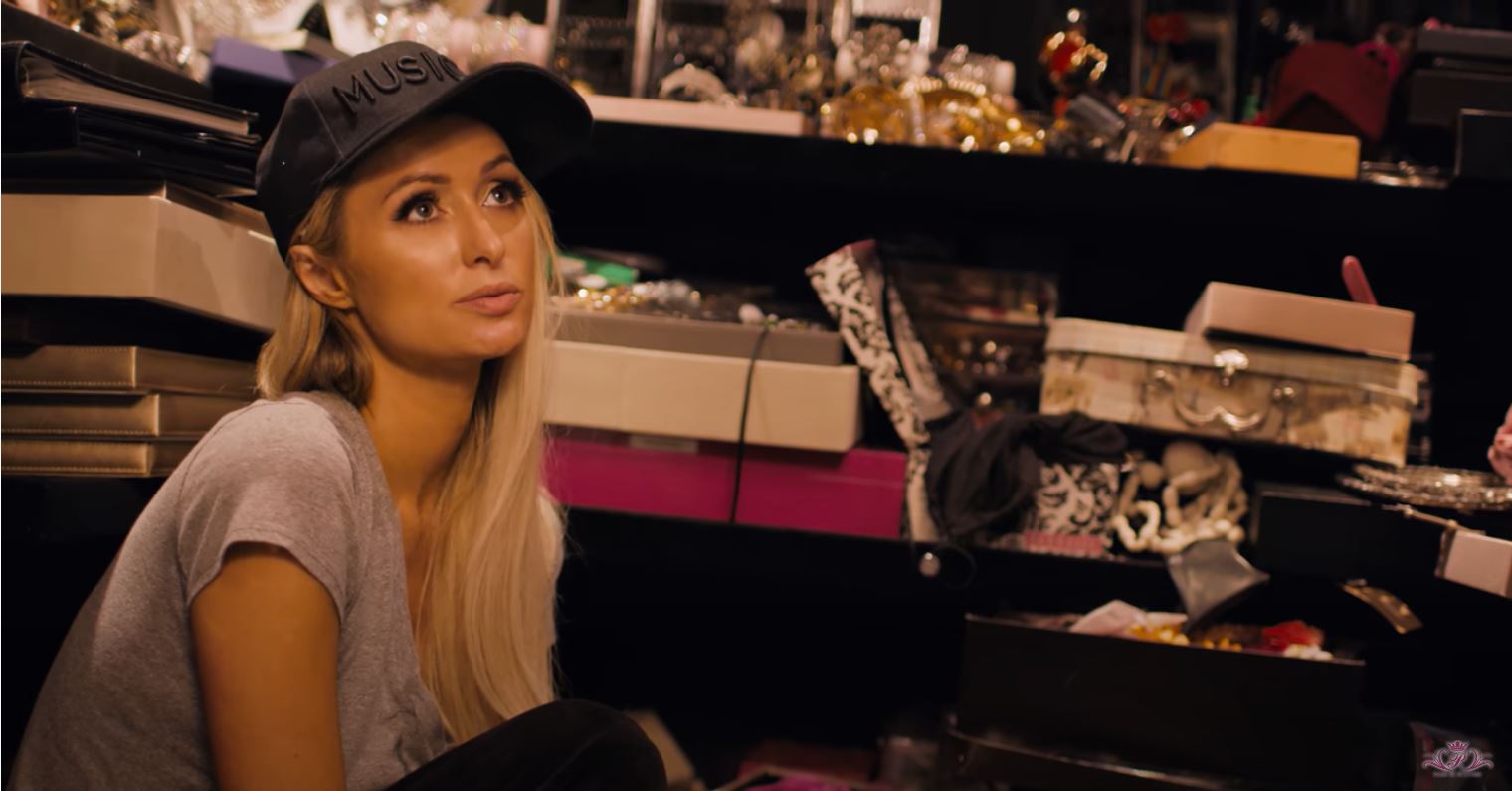The recently released documentary This is Paris on YouTube has sparked much discussion regarding the original social influencer, Paris Hilton. Despite supposedly living a life very much in the public eye, many viewers of the documentary and long-term fans of Hilton were surprised as to how much they didn’t know about the reality superstar. Alexandra Dean’s film covers many issues from Hilton’s love life, her relationships with her family, her addiction to money, as well as a severely traumatic coming of age.
WHAT DO WE LEARN ABOUT PARIS?
For someone who came into this documentary not knowing much about the life of Paris Hilton, I learnt a lot. And there were several aspects in particular to the documentary that I found intriguing about Paris’ life, and left me wanting more information.
Firstly, I was shocked to find out in the opening scenes of the film, that the “baby” voice that is iconic to the Paris Hilton persona, is not actually the way she speaks. Hilton explains throughout the documentary, that when she was ‘taking off’, largely through her appearance on the 2003 American reality series The Simple Life, alongside Nicole Richie, she was often urged to play a ditzy blonde character in front of the camera.
Hilton quickly came across to her audience as a young girl who spoke in a high pitch voice and had grown up in such immense privilege, that she was unaware of the normalcies of the average American life. In one episode she shocked American viewers when she asked, “What’s Walmart?”. Her ‘dumb blonde’ persona then became a part of her trademark. She confesses in the opening minutes of the documentary, she now finds it hard to speak in front of cameras without reverting back to those old performative habits.

Another topic that I found interesting throughout the documentary, was the idea of Paris Hilton being the original ‘influencer’. In 2020, where social media influencers have essentially become the new high-brow celebrities, it is easy to forget a time when people often had to actually possess talents in order to be famous. Hilton herself generated this new genre of the celebrity, where an individual could be ‘famous for being famous’.
Besides her passion for DJing that she found later in life, Paris was never really known for singing, dancing or acting. Instead, she came to prominence through a reality TV show (in a time when this TV genre wasn’t firmly established) and stayed in the public eye through people being desperate to know what she was up to. Kim Kardashian is a prime example of just how far this genre of celebrity has come. Originally, as her best friend/assistant, Kardashian was completely new to the influencer, celebrity lifestyle, and watched Hilton create a career for herself in this unfounded new industry.
In regards to this time in the two’s friendship, Kim states in the documentary, “I think the best advice that she ever could have given me, was just watching her”.

The greatest issue and the centre focus of the film is Hilton’s trauma and anxiety surrounding the abuse she suffered during her teenage years at a reformatory school known as Provo Canyon. Known for it’s ‘tough love’ stance for troubled kids, Hilton and fellow survivors re-tell stories of their times at the school involving physical abuse, as well as being forced to take anti-psychotic medications on a daily basis.
Throughout the film we watch Paris wrestle with the underlying traumas that still plague her everyday existence, as well as her fractured relationship with her family who allowed her to be shipped off to this boarding school. Provo Canyon is just one example of similar reformatory schools that exist all across the USA. Hilton and her supporters are now concerned with drawing as much attention to these institutions as possible in order to get them to shut down.
THE REVIEW
Whilst I really enjoyed watching This is Paris and I definitely learnt so many things about Hilton and the strange area of society in which she orbits, there were a few things about the documentary that I think could have been executed better.
Firstly, the structure of the film was a bit flimsy and didn’t seem to stick to a strict timeline. Whilst there were so many different aspects of Hilton’s life that were covered within the film, I often felt that different aspects that were actually really interesting, were glazed over in order to merely ‘set the scene’ for the central focus: Provo Canyon. Whilst I thought the horrific abuse that occurred at this school was important, and definitely shaped the way we perceived Paris and her continued traumas, I thought other aspects were similarly interesting as well as pivotal to our understanding of Hilton’s personality. It seems the film’s director, Alexandra Dean, was trying to cram too many topics within such a short time frame.
Scenes that uncovered Paris’ relationship with business, her family and her romantic relationships, were all really interesting to me. However, it felt as though once we were just getting into the crux of these issues, the director would quickly flick to the next scene. Perhaps these topics could have received more attention if the project were a series rather than a 1-hour 45-minute documentary?
Paris’ relationship with business and money, as an equation for success and happiness, was an issue that I found incredibly intriguing as well as depressing. I thought it was something that definitely could have been explored further. In different scenes we see snippets and cutaways of Hilton expressing her discontent with her current lifestyle: having chronic insomnia, spending over 16 hours a day on her phone, experiencing re-occurring dreams of her times in Provo as well as constantly entering into toxic relationships. However, all of these areas aren’t really explored, and when asked about her state of being Paris states, “I’m happy now sometimes, but it is lonely”.

When asked what it would take to further her happiness she turns to the camera and reveals, “When I was a teenager I always wanted to make 100 million. I was like, ‘when I do that I’ll be happy'”. Now she claims she will only experience true happiness when she reaches her new goal of one billion dollars.
I thought these cutaway shots to the camera were incredibly indicative of Hilton’s constant dissatisfaction and the empty void she is endlessly trying to fill. The director perhaps could have linked this to a wider problem within the American capitalistic structure and the vacuous falsity behind the American Dream.
The fact that even one of the most famous and richest women in the world, who has access to any materials or services she could possibly need, still believes the way to make herself happy is via consumerism is an astonishing realisation. Paris discusses her desire to make a billion dollars, whilst the background reveals a cupboard filled with piles of silver and gold, all of which she has previously revealed she neither wears nor wants.
Overall, I think This is Paris is definitely worth a watch. Although I believe the editing and the storyline could have been more carefully curated by its creators, Hilton’s story is so incredibly interesting, as it is unbelievable. It is hard to draw your eyes away from the screen.
I hope this isn’t the final piece of footage we see of Paris, and that further depth into her story is yet to come.
Subscribe to FIB’s Weekly Alchemy Report for your weekly dose of music, fashion and pop culture news!







